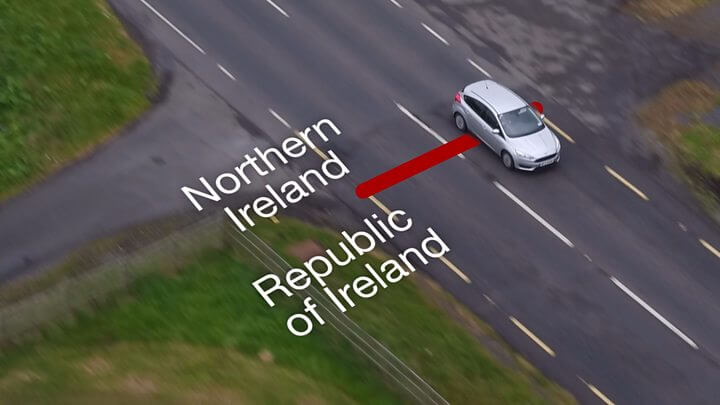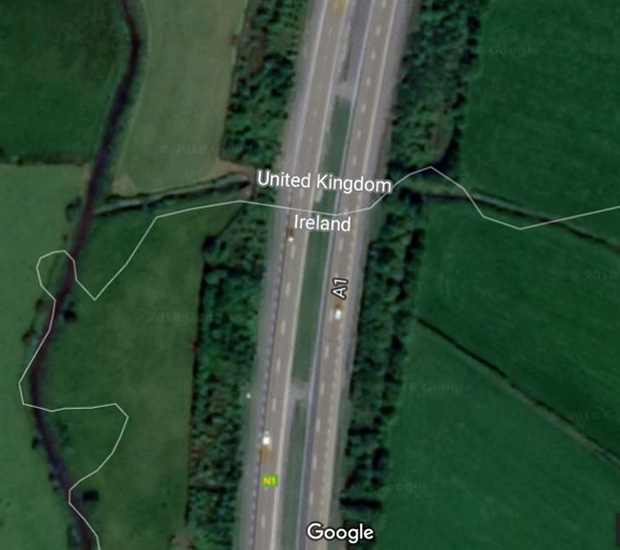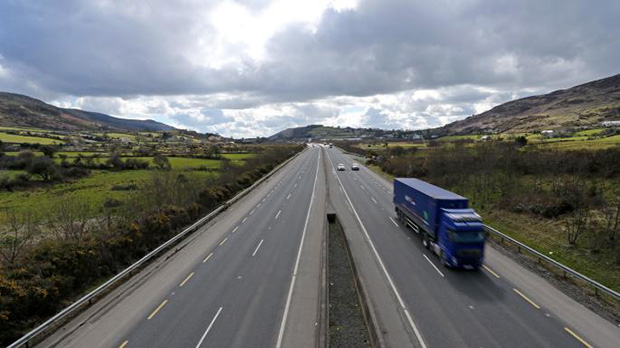No Escape For Road Traffic Offenders On Both Sides Of The Irish Border

When it comes to traffic offences, a unique challenge for Ireland is the fact that we have a land border between the Republic of Ireland and Northern Ireland.
With a border comes the added complication of drivers from both jurisdiction crossing the border and committing road traffic offences in another State.
With the land border on the island of Ireland, it is a challenge for the authorities to maintain safe driving standards on both sides of it.
Up until just last year, a driver who was disqualified from driving for committing an offence could very happily
Traditionally, a driver disqualified on one side or the other could happily drive a few miles over the border and traverse the highways and byways with impunity.
All this changed though on August 1, 2017, when a cross-border agreement was introduced between the Irish Republic and the UK. From that date, regardless of where a driving offence takes place on the island of Ireland, the driving disqualification applies in both jurisdictions.
At the time of the introduction of these measures, Shane Ross, the Irish Minister for Transport, Tourism and Sport said,

What this means is, that road traffic offences committed in either jurisdiction will now be recognised in both the Republic and the United Kingdom. The main purpose of the new laws is to reduce road deaths.
Where a driver is disqualified, the disqualification is transferred to the offender’s ‘home’ state. If, for example, a driver from the UK commits an offence while driving in the Republic of Ireland, the driver’s licence will be endorsed, at which point, the UK authorities will be notified of this endorsement and that will be recognised in that jurisdiction.
This will make the situation more straightforward both sides of the border. If a driver from Armagh is disqualified in Louth, the offence will be carried home and applied to their licence. They will be disqualified from driving in both states. And vice versa.
It is true that road traffic fatalities have reduced significantly in both Northern Ireland and the Republic in recent years, there is still room for improvement. Last year, 157 lost their lives on roads in the Republic of Ireland. Although this was a dramatic reduction on the 1971 figures when road deaths reached a colossal 576, it still is not good enough.
In the period January - December 2017 there were 142 fatal collisions resulting in 157 fatalities on Irish roads. This represents 17% fewer collisions (-30) and 16% fewer deaths (-29) compared to provisional Garda data for the full year of 2016 (186). To date this year (24th October 2018), road deaths are 120, which is lower than for the same period in 2017 when 124 road deaths occurred.

When we look at the statistics for Northern Ireland, we also see a dramatic reduction in fatalities from 372 in 1972 to 63 in 2017. To date (24th October 2018) this year in Northern Ireland 46 people have been killed in road accidents, compared with 49 for the previous year over a similar time frame.
The new rules will no doubt have an impact by preventing convicted drivers from continuing to drive no matter where they are on the island.
The new agreement will cover a range of disqualifications. The most significant of these is disqualification due to reckless or dangerous driving, whether resulting in death or serious injury or not. Dangerous drivers including those convicted for driving under the influence are disqualified on both sides of the border and in the wider UK.
The law will also have the effect of deterring drivers who are convicted of speeding and who drive outside their own jurisdiction, as they will no longer be able to ‘ditch’ that conviction once back in their own jurisdiction.
This will force drivers to drive with care and attention, and within the speed limits, in both their own jurisdiction and across the border, because the threat of conviction will carry weight in both places and penalty points can be imposed on both sides of the border.
If a driver has been disqualified for 6 months or more, they are also disqualified in both the Irish Republic, Northern Ireland and the UK. Driving disqualifications of under 6 months can also be taken into account, which means that those drivers are no longer free to drive, but will be subject to the law on both sides of the border.
One thing is clear, we can all do more to ensure those road collisions are reduced, whether that involves slowing down, leaving the mobile phone in the boot, or driving with greater care.
And as if further motivation were needed, convictions on either side of the border will have to be declared when renewing car insurance. Yet another reason why it pays to drive with care, no matter where.

Author

Justin Kavanagh
Justin Kavanagh is a recognised leader
in automotive intelligence and vehicle
data supply to the entire motor industry.
He has almost 20 years experience in
building systems from the ground up.
As the Managing Director of Vehicle
Management System, he understands the
need and importance of trustworthy and
reliable vehicle history and advice to
both the trade and the public.
Follow me on LinkedIn